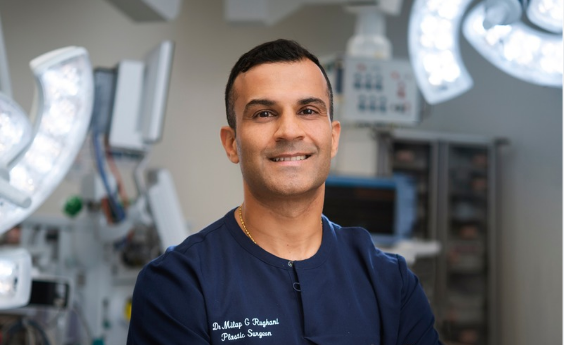Choosing a surgeon for cosmetic surgery

Not only does cosmetic surgery mean a permanent change to your appearance, as with any surgery, it also carries an element of risk. So it makes sense that you would want your body or face to be in the hands of someone who will deliver a great aesthetic outcome safely.
With that in mind, how do you go about choosing the right surgeon for you?
Ideally, you would choose someone with whom you have a good rapport and you feel understands your expectations; explains the surgery and potential risks carefully and doesn’t make you feel pressured into making a decision with which you don’t feel comfortable.
But crucially, you should consider a skilled surgeon with the appropriate training and qualifications.
One thing you may not realise is that in Australia a wide range of medical practitioners perform cosmetic surgery but not all have undergone the same level of training and assessment. So knowing more about the difference between practitioners can help inform your choice.
Do you know the difference between a Specialist Plastic Surgeon and a cosmetic surgeon?
In Australia, there are 9 specialties recognised by the Medical Board of Australia; Plastic and Reconstructive Surgery, Neurosurgery, Orthopaedic Surgery, Paediatric Surgery, Urology, Otolaryngology Head and Neck Surgery, Vascular, Cardiothoracic and General Surgery.
Doctors are only allowed to call themselves a medical specialist in one of these fields if they have appropriate qualifications. So if a doctor has a specialist title recognised by the Medical Board of Australia it means he or she completed and passed a specific training program appropriate to their specialist field.
It’s important to note that, the Medical Board does not recognise cosmetic surgery as a separate surgical specialty, nor the title ‘cosmetic surgeon.’
However, in Australia, it is not illegal for doctors with only a basic medical degree to perform surgeries, even without any specialist qualification. So while the title ‘cosmetic surgeon’ has no official recognition by government regulators it is commonly adopted by practitioners who perform cosmetic surgeries but who may have no more surgical training than your GP.
Essentially they are giving themselves a ‘made-up’ title.
However, only FRACS qualified doctors can call themselves a Specialist Plastic Surgeon and earning that title involves many years of rigorous training and ongoing examination.
How does a doctor become a Specialist Plastic Surgeon?
RACS delegated the responsibility for the administration of and selection into the Plastic & Reconstructive Surgery SET program in Australia to the Australian Society of Plastic Surgeons (ASPS). Only successful graduates of these programs become Fellows of the Royal Australasian College of Surgeons and can use the title FRACS after their name.
ASPS is the only body in Australia recognised by the Medical Board to deliver the training of Specialist Plastic Surgeons. You may have seen the names of other ‘colleges’ or organisation’s in the cosmetic surgery field, but these are typically private entities and their programs are not officially recognised by Government Health Regulators.
To become a Specialist Plastic Surgeon a doctor must have completed a five-year medical degree. After this, they will become an intern then a resident and finally undertake a registrar post. Only then are they eligible to apply for the Plastic Surgery training program.
Selection is highly competitive and only the most outstanding candidates are successful in securing a handful of trainee positions each year. The program is taught and assessed by experienced senior specialists in the field.
Training is rigorous and candidates are assessed on several key competencies which not only include technical surgical skills but also include non-technical skills such as;
Communication, Teamwork and Collaboration, Management and Leadership, Health Advocacy, Scholarship and Teaching and Professionalism and Ethics.
Only once they complete this course can they become a Fellow of the Royal Australasian College of Surgeons (FRACS) and call themselves a Specialist Plastic Surgeon. Only Specialist Plastic Surgeons can become members of ASPS.
What does this mean for you?
Ultimately the person you select to perform your surgery will be a personal choice based on several factors. Qualifications alone do not guarantee a surgeon is the right one for you and skills, experience and rapport will vary from person to person.
Remember, a fancy website with lots of logos is no guarantee of excellence. Don’t be afraid to ask questions, and you can always check a doctor’s qualifications – including any restrictions on their practice – through the Medical Board of Australia. Selecting a surgeon from the ‘Find a Surgeon’ section of the ASPS website guarantees you are selecting a highly trained Specialist Plastic Surgeon.
Cosmetic surgery is permanent. It’s not something you have to do to save your life – it’s a choice you make because you want to, not because you need to. So it’s important to take your time and carefully plan and consider all your options. Don’t be afraid to ask questions and if you are not convinced, get a second – or third – opinion.
Featured Stories

ASPS welcomes new Ahpra guidelines for Non-Surgical Cosmetic Practitioners
Sydney. June 3, 2025: The Australian Society of Plastic Surgeons…
Continue reading Like
Like

